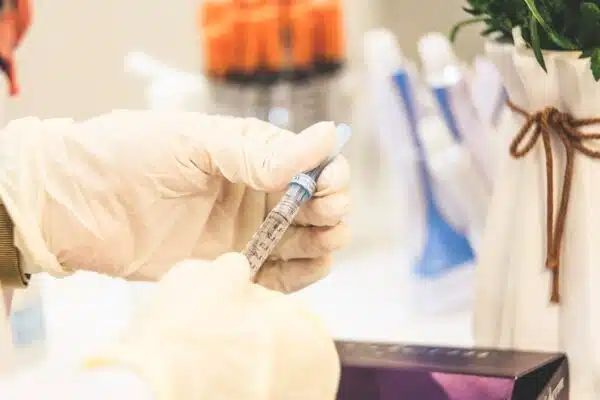In a new op-ed for The New York Daily News, Dr. Pierre Kory shares some ideas for strong Congressional oversight that could hold agency leaders accountable for progress.
President Biden officially ended the U.S. COVID-19 emergency this week, but we’re only beginning to understand how deeply the pandemic has disrupted our healthcare system. Centuries of medical practice were upended to ensure pharmaceutical companies could earn record profits from new coronavirus treatments and vaccines.
Writing in The New York Daily News, Dr. Kory explains what it really means to “follow the science” and calls on Congress to rebalance the role of a central regulatory state with the power of a doctor’s judgment.
Doctors thinking critically and trusting their own experience has formed the foundation of medicine for a thousand years. They apply the scientific method, testing different approaches to heal patients, building on what works and discarding what doesn’t.
In the early 20th century, this process was used when Alexander Fleming discovered a compound, penicillin, that prevented fungus growing in his lab. Years later, a team at Oxford tested his observation in a tiny study of just eight rats. Four treated with penicillin survived Streptococcus infection, while the other four died. That insight changed the world as the medicine was scaled up for mass treatment against bacterial infection in the ensuing decades, through World War II. Insulin was discovered around the same time when physicians noticed pancreatic secretions that affected the body’s ability to process glucose. It was observed, extracted, and then used in patients.
This process has produced hundreds of new drugs in the last century. It’s also produced new uses for drugs. In clinical practice, doctors routinely observe how drugs intended for one use can perform another function like reducing cholesterol, moderating blood pressure, or regulating depression. The Agency for Healthcare Research and Quality estimates that doctors prescribe 20% of drugs “off-label” for a different use than what FDA approved.
On our present course, where doctors are trained to be less curious and blindly follow standards of care rather than developing and testing treatment hypotheses, we’re going to see fewer medical breakthroughs. RCTs produce some useful data, but they must be complemented with the real-world evidence doctors accrue every day in practice that helps to translate our approved treatments into improved health and life expectancy.

Insulin was discovered when physicians noticed pancreatic secretions that affected the body’s ability to process glucose. It was observed, extracted, and then used in patients. Photo by Sam Moghadam Khamseh on Unsplash
Dr. Kory proposes two actions by which Congress can put doctors back in the driver’s seat and strengthen our medical system’s ability to address future disease outbreaks.
First, Congress can ensure adequate funding for the National Center for Advancing Translational Sciences, the agency within the National Institutes of Health that enhances the development of diagnostics and therapeutics. This agency can accelerate knowledge around existing molecules and combined treatments. It should add a new function to robustly collect and analyze observational work of physicians to shape a scientific framework that can more effectively advance beyond single drug trials. As we learned with COVID-19, the virus was first infectious and later a disease of excessive coagulation. These are radically different disease processes. Our system was not set up to adapt.
Second, it needs to replenish the Biomedical Advanced Research and Development Authority, which sits inside Health and Human Services and expand the oversight and data collection capacity to assure that political bias stays out of future funding decisions. A cross-section of scientists, even contrarian ones, but especially must include experienced physicians from the community without ties to the pharmaceutical industry — the conflicts of interest must stop. If this is accomplished, I believe we could devise a method to systematically test approved drugs alongside and with expensive new molecules.
With funding at the federal level, we can create a pathway for both individuals and groups of scientists to research new uses for old and new drugs and share their findings. This will lead to more inclusive processes for discovery of how off patent molecules can be applicable to today’s health challenges. And it will ensure that future discoveries are minimally influenced by money, special interests, and political meddling.
Republicans may balk at the idea of giving the government more money to research drugs, especially after the debacle we’ve been through, but it’s the only way to drive an effort at this scale. Strong Congressional oversight will hold agency leaders accountable for progress. Properly pitched, it’s an idea that could gain bipartisan support and put our healthcare system back on track.
You can read Dr. Kory’s full editorial in the Daily News here.





